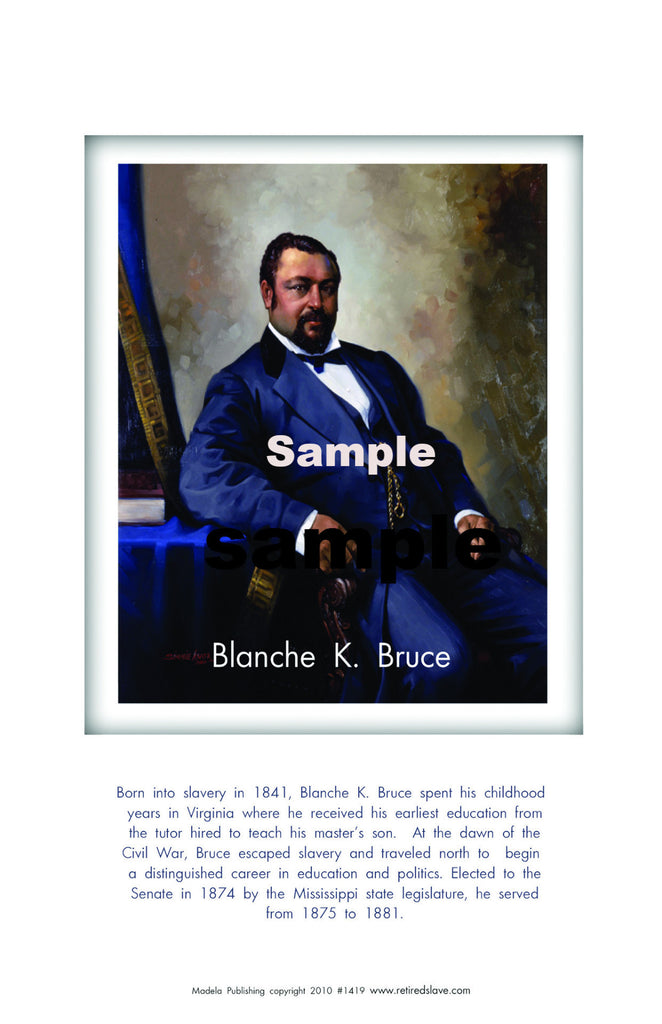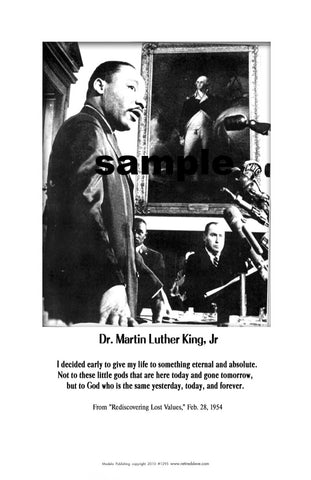Blanche K. Bruce #1419
$ 10.00
Caption from poster__
Blanche K. Bruce
Born into slavery in 1841, Blanche K. Bruce spent his childhood
years in Virginia where he received his earliest education from
the tutor hired to teach his master's son. At the dawn of the
Civil War, Bruce escaped slavery and traveled north to begin
a distinguished career in education and politics. Elected to the
Senate in 1874 by the Mississippi state legislature, he served
from 1875 to 1881.
Blanche Kelso Bruce 1841 -1898 Former Slave Presides over Senate On February 14, 1879, a Republican senator from Mississippi presided over the Senate. In this instance, the Senate's customary practice of rotating presiding officers during routine floor pro- ceedings set a historical milestone. The senator who temporarily assumed these duties had a personal background that no other senator, before or since, could claim: he had been born into slavery. Blanche K. Bruce was born 38 years earlier near Farm- ville, Virginia. The youngest of 11 children, he worked in fields and factories from Virginia to Mississippi. Highly intelligent and fiercely ambitious, Bruce gained his earliest formal education from the tutor hired to teach his master's son. At the start of the Civil War, Bruce escaped slavery by fleeing to Kansas. He attended Oberlin College for two years and then moved to Mississippi, where he purchased an abandoned cotton plan- tation and amassed a real estate fortune. In 1874, while Mississippi remained under postwar military control, the state legislature elected Bruce to the U.S. Senate. Several years earlier, that legislature had sent the Senate its first African-American member when it elected Hiram Revels to fill out the remaining months of an unexpired term. Blanche Bruce's Senate service got off to a sour start when Mississippi's other senator, James Alcorn, refused to escort him to the front of the chamber to take his oath of office. As Bruce started down the aisle alone, New York Republican Roscoe Conkling moved to his side and comp- leted the journey to the rostrum. The grateful senator later named his only son Roscoe Conkling Bruce. Withdrawal of the military government in Mississippi ended Republican control of that state's political institutions and any chance that Bruce might serve more than a single term. That term, however, proved to be an active one as he advocated civil rights for blacks, native Americans, Chinese immigrants, and even former Confederates. It was during a heated debate on a bill to exclude Chinese immigrants that Bruce made history at the presiding officer's desk. After leaving the Senate, Bruce held a variety of key government and educational posts until his death in 1898.




